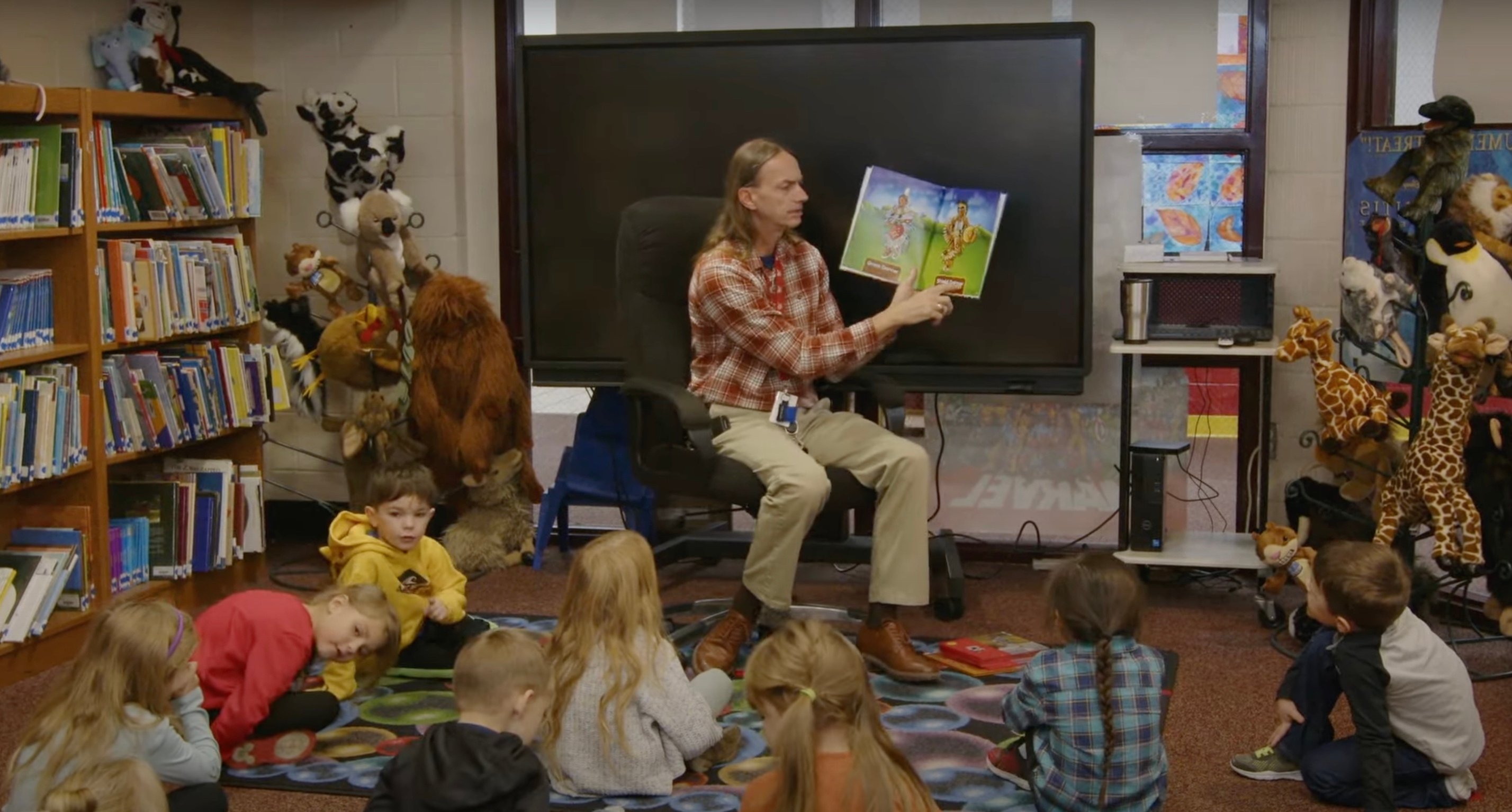
For 10 centuries before European settlers arrived, there were indigenous populations thriving in all parts of what would later become the state of Michigan.
The state is now home to 12 federally recognized Indian tribes, and Michigan ranks as one of the 10 states with the highest populations of Native Americans.
As tribal members work to preserve their heritage, language and culture, three charter schools in the Upper Peninsula are doing their part to help.
In the Sault Ste. Marie area, the Joseph K. Lumsden Bahweting Anishnabe Academy serves the thriving local Anishnabe community, while a little farther to the west, the Ojibwe Charter School serves the Sault Ste. Marie tribe of Chippewa Indians.
The Ojibwe Charter School is authorized by Bay Mills Community College, a public tribal land grant community college that is one of Michigan’s largest charter-school authorizers.
Just outside Escanaba, meanwhile, the Nah Tah Wahsh Public School Academy serves the Potawatomi community.
All three schools help tribal communities improve student achievement while strengthening their cultural heritage.
“JKL is really important to our community, but particularly very important to our Native community here. It really is a source of pride,” said Heather Purple, the principal at JKL Bahweting Anishnabe Academy. “It serves a place to teach about the culture, to provide awareness to the whole community. It's an environment where the Native culture is really embraced.”
A a 2018 handbook from the National Indian Education Association made the case that the country could use more culturally-based charter schools in tribal communities.
“The handbook included a report that outlines very specifically how charter schools are a lifeline to Native American tribal communities,” said Dan Quisenberry, President of the Michigan Association of Public School Academies (MAPSA), the state charter school association. “That’s something we’ve seen both nationally and in Michigan. Charter schools are giving Native American students hope for a brighter future that wouldn’t exist otherwise.”
The role that tribal charter schools play in helping keep the culture alive in the next generation of tribal members is extremely important.
“Coming in here in this setting, we create a little ember in them,” said Dr. Chris Gordon, Director of Federal, State and School Programs at JKL Bahweting. “When they leave, that ember is there and they can fan that to become a fire in them and our own strength of who they are in language and culture to know their own history, but also how they're valued and feel respected and important.”
Michigan has become a national leader in tribal charter schools, and here’s a closer look at the three schools in our state:
Joseph K. Lumsden Bahweting Anishnabe Academy, Sault Ste. Marie
Originally a private school known as Bahweting Anishnabe School, it opened in 1975. In 1995, just one year after the first charter schools opened in Michigan, it became a charter school authorized by Northern Michigan University.
In 1998, the school changed its name to Joseph K. Lumsden Bahweting Anishnabe Academy, in honor of the late Joseph K. Lumsden, a longtime tribal leader. Bahweting is an Ojibwe word meaning “the gathering place.”
The JKL Bahweting Anishnabe Academy achieved a notable honor in 2021 when Tan-A Hoffman, a teacher at the school, was named a Regional Teacher of the Year by the Michigan Department of Education – the first Michigan charter school teacher to earn that honor. That distinguished her as the top teacher in the entire Upper Peninsula.
Most recently, JKL was honored when Dr. Chris Gordon, Director of Federal, State and School Programs at the school, was honored by the Michigan Department of Education as a #ProudMiEducator. The state sent a video team to Brimley to capture the story of Dr. Gordon and the school.
Ojibwe Charter School, Brimley
Located on the Bay Mills Community College campus on the shores of Lake Superior, the school serves the Sault Ste. Marie tribe of Chippewa Indians, whose ancestors have lived in the Great Lakes basin for thousands of years.
In addition to top-notch academics, the Ojibwe Charter School keeps alive tribal traditions and the Ojibwe language.
Nah Tah Wahsh Public School Academy, Hannahville
Located just west of Escanaba, this school holds the distinction of being the only Michigan charter school that’s located in the Central Standard Time zone (although the school operates on Eastern Standard Time to keep things easy for the widespread community it serves).
Originally known as the Hannahville Indian School , it was established in 1976 to address the special academic needs of Potawatomi students while teaching them about their history and culture.
In 1995, it was chartered by Northern Michigan University and became the Nah Tah Wahsh Public School Academy. Nah Tah Wahsh means “soaring eagle.”
In addition to its K-12 education program, the school has a nationally recognized Family and Child Education program which serves families and adults in the community and helps adults earn a General Education Diploma.
Michigan's Charter School Association
123 W Allegan, Ste 750
Lansing, MI 48933
Ph: (517) 374-9167
No Comments Yet
Let us know what you think